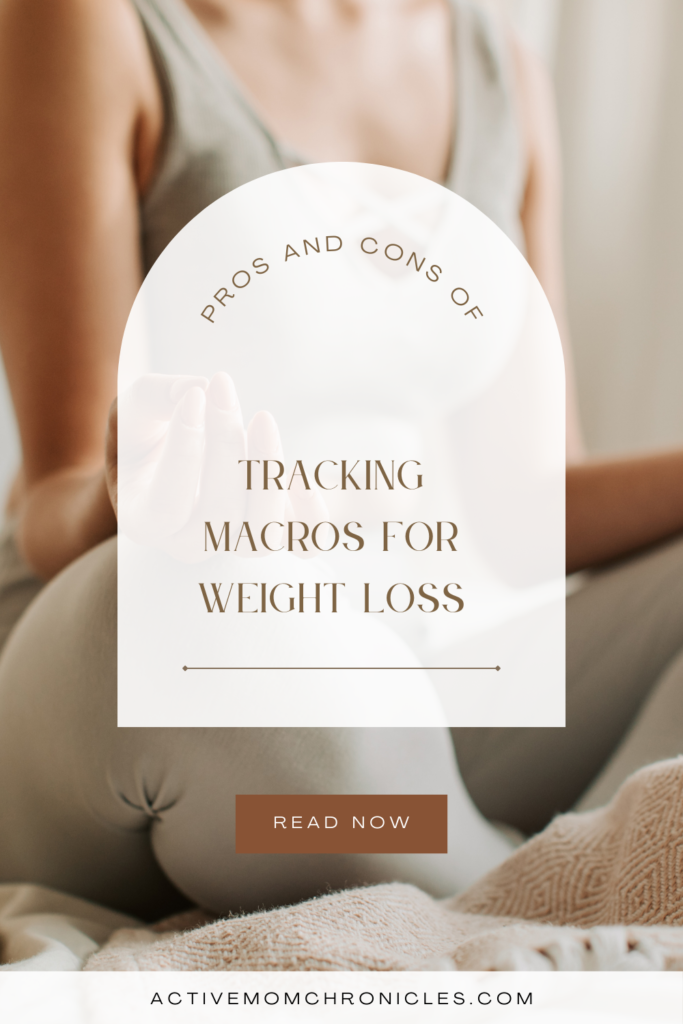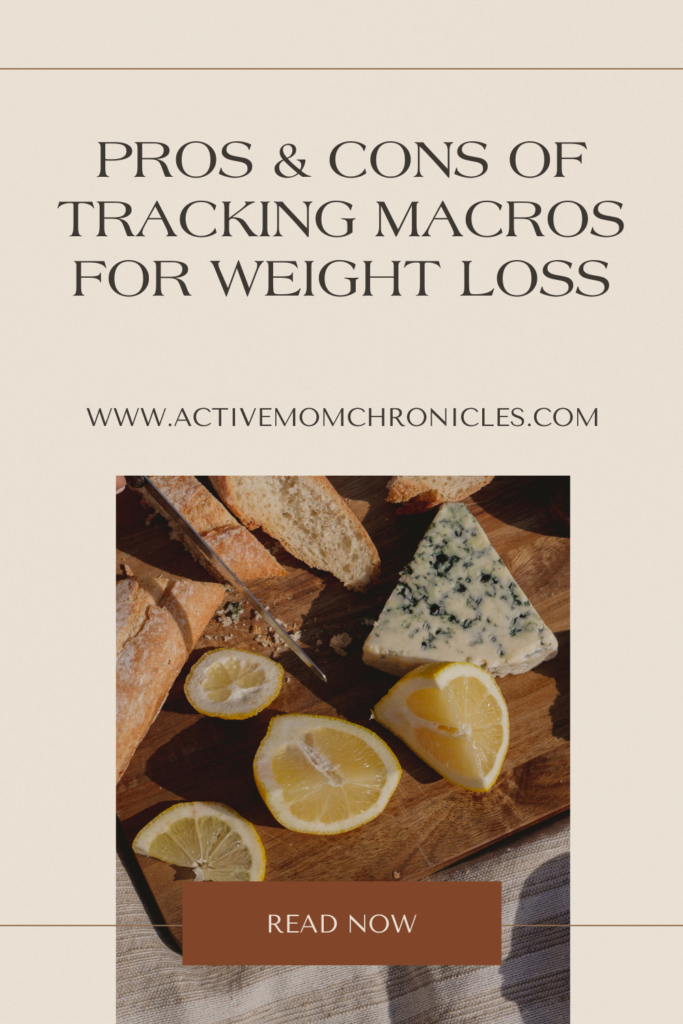Tracking macros, or macronutrients (carbohydrates, proteins, and fats), has become a popular approach for weight loss and body composition improvements. This method involves setting daily macro targets based on individual goals and monitoring food intake accordingly. But is it the right approach for you? Let’s dive into the pros and cons of tracking macros for weight loss.
Pros of Tracking Macros for Weight Loss

1. Precision in Nutrition
Tracking macros allows for a more precise approach to nutrition. Unlike general calorie counting, it ensures that you’re getting the right balance of nutrients for optimal weight loss and muscle preservation.
2. Encourages a Balanced Diet
Focusing on macros helps individuals prioritize nutrient-dense foods, ensuring that they get adequate protein, healthy fats, and quality carbohydrates rather than just cutting calories mindlessly.
3. Helps Build Awareness of Portion Sizes
Tracking macros can be an eye-opener when it comes to portion sizes and food choices. Many people underestimate how much they eat, and this method helps build mindful eating habits.
4. Supports Different Diet Goals
Whether your goal is fat loss, muscle gain, or body recomposition, tracking macros allows for flexibility while ensuring you stay within your dietary targets.
5. No Foods Are Off-Limits
One of the biggest benefits of tracking macros is the flexibility it offers. Unlike restrictive diets, this approach allows you to eat your favorite foods as long as they fit within your daily macro goals.

Cons of Tracking Macros for Weight Loss
1. Time-Consuming and Tedious
Tracking every meal and snack requires effort and consistency. Logging food, measuring portions, and calculating macros can be overwhelming, especially for beginners.
2. Can Lead to Obsessive Behavior
For some individuals, tracking macros can become an obsession, leading to stress, anxiety, and an unhealthy relationship with food.
3. Requires Accurate Food Tracking
To be effective, macro tracking relies on precise food measurements. Estimating portions or mislogging food can lead to inaccurate results and hinder progress.
4. Not Always Practical in Social Situations
Eating out, traveling, or attending social events can be challenging when tracking macros. It’s not always possible to measure portions or log exact ingredients, which can add stress to the experience.
5. Might Not Be Sustainable Long-Term
While tracking macros can be a great tool for learning about nutrition, it may not be a sustainable long-term solution for everyone. Many people find it exhausting to track every bite indefinitely.
Is Tracking Macros Right for You?
Tracking macros can be highly effective for weight loss, but it’s not for everyone. If you enjoy structure, data-driven approaches, and have specific body composition goals, it can be a powerful tool. However, if you find it overwhelming or stressful, a more intuitive approach to eating might be a better fit.
Final Thoughts & Recommendations
There’s no one-size-fits-all approach to weight loss. The key is finding a method that works for your lifestyle and helps you maintain a healthy relationship with food. Whether you choose to track macros or adopt a more flexible approach, consistency and balance are essential for long-term success.
I personally like to track what I am eating for 2 weeks so I can get a sense of portion sizes based on macros I am trying to achieve for my goals so I get an idea of portion sizes for the meals I usually eat. I then stop.
I also use recipes from my meal guides so I know it is easy to enter find macros for that recipe.
Would you consider tracking macros for weight loss? Let us know in the comments below!




Leave a Reply